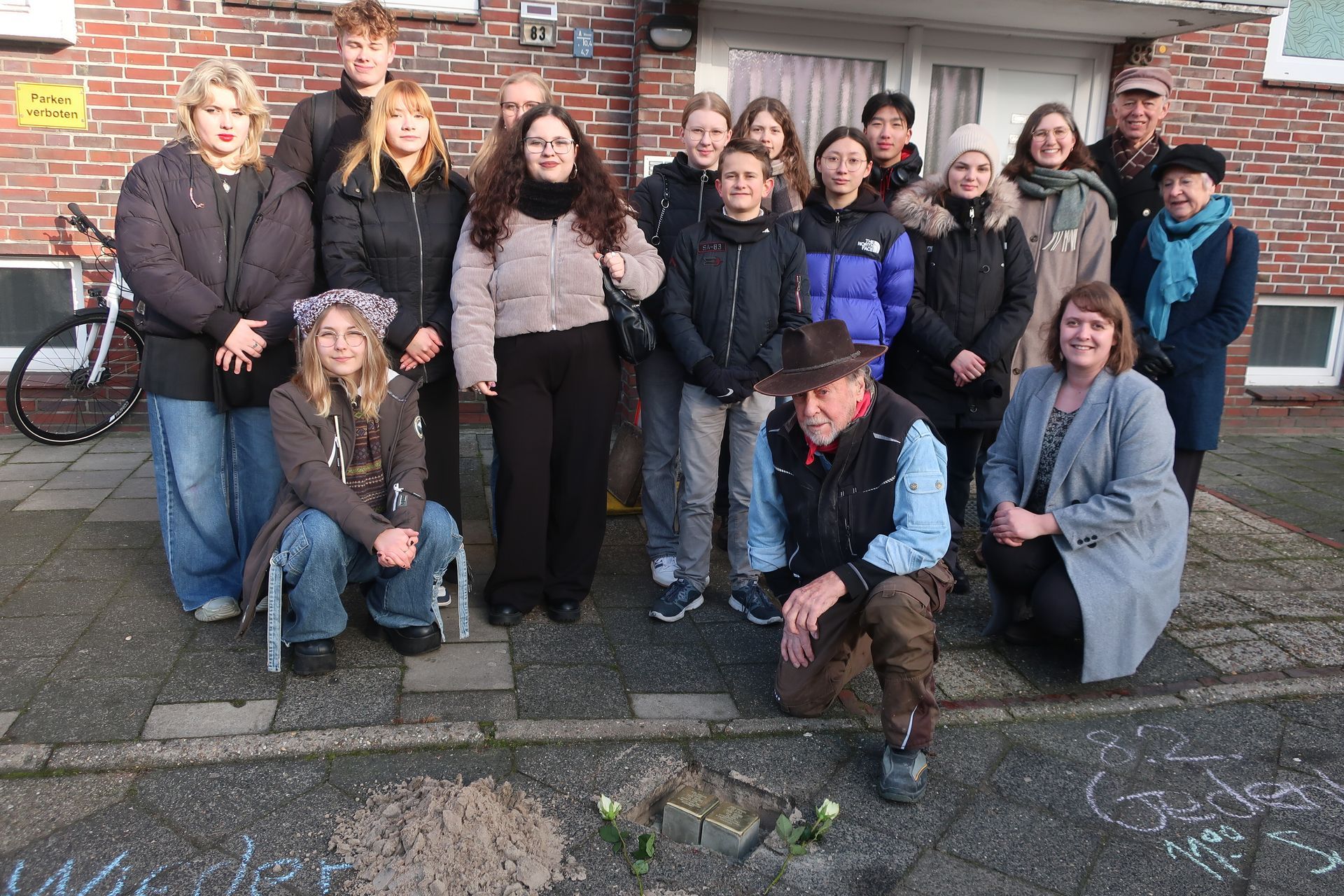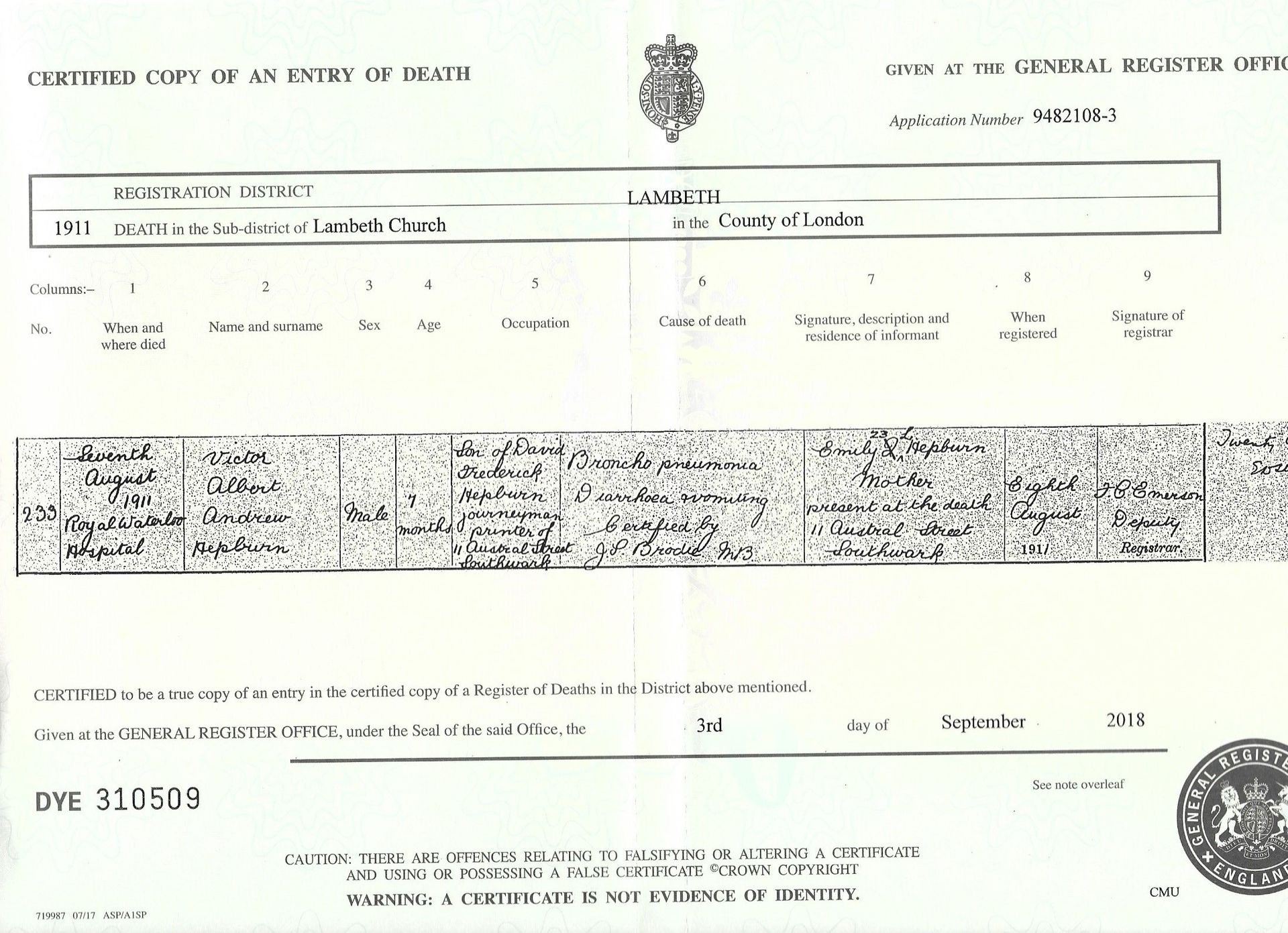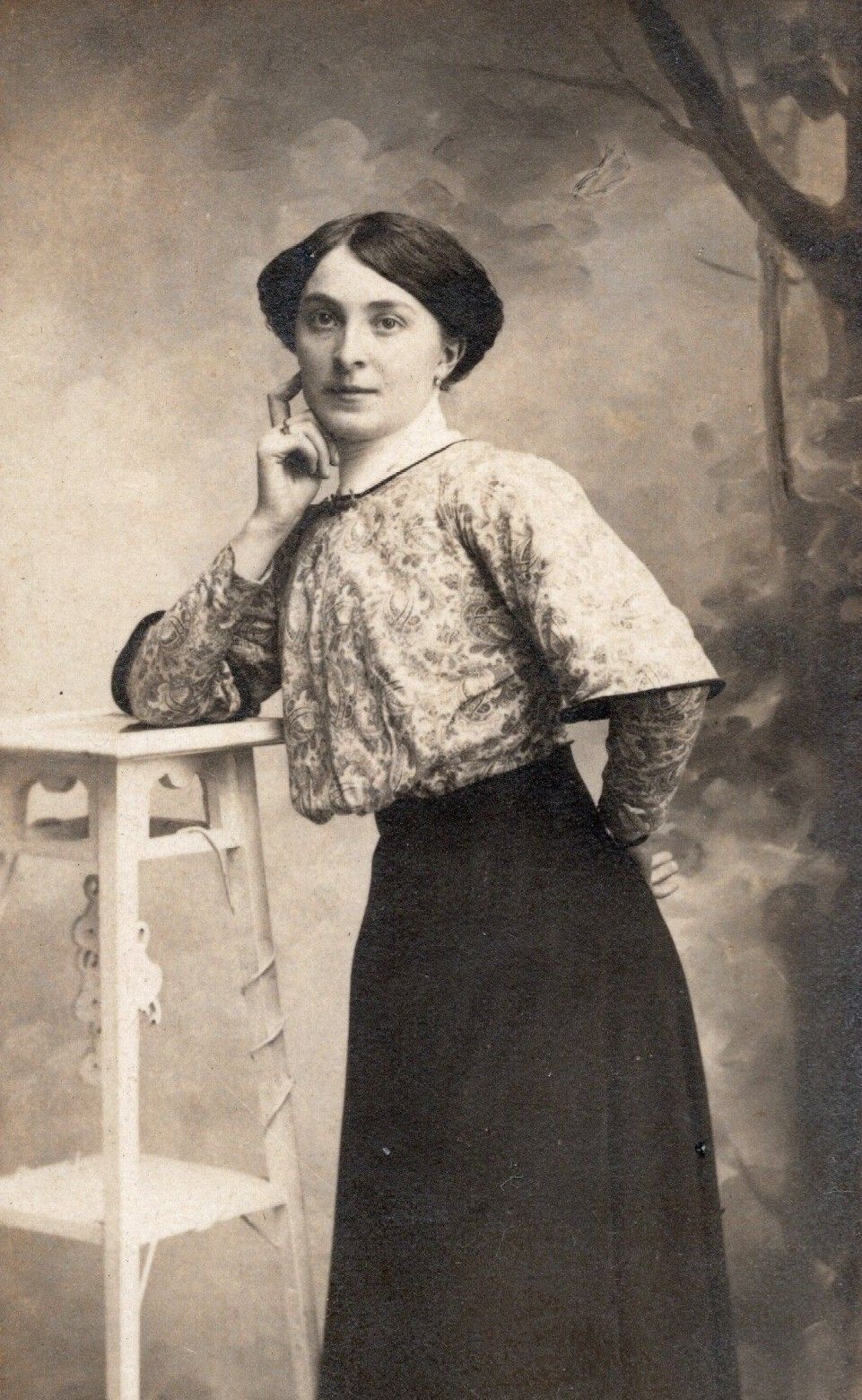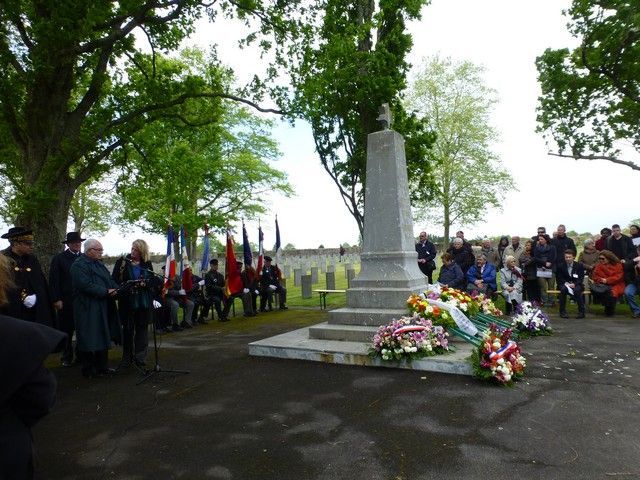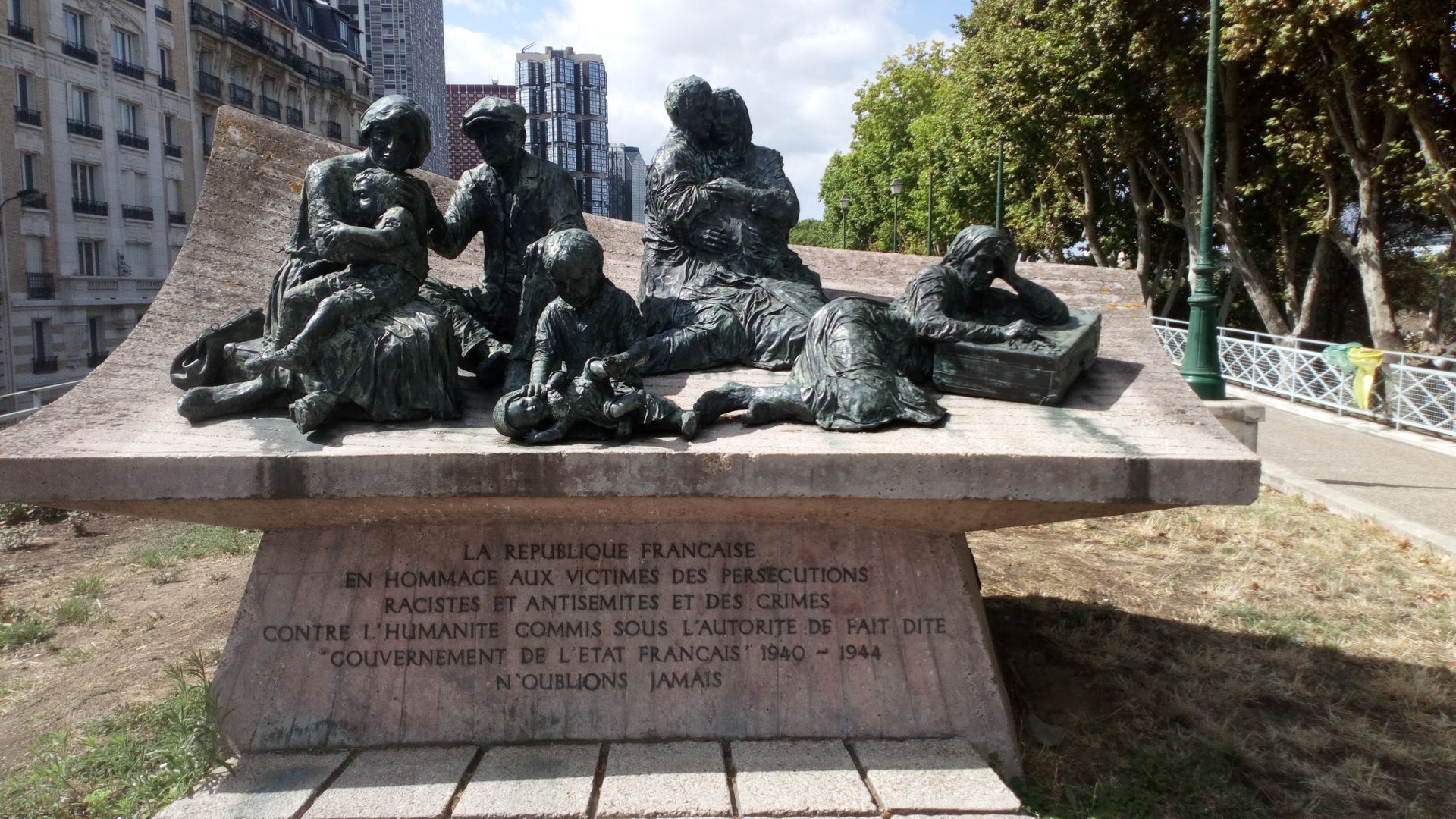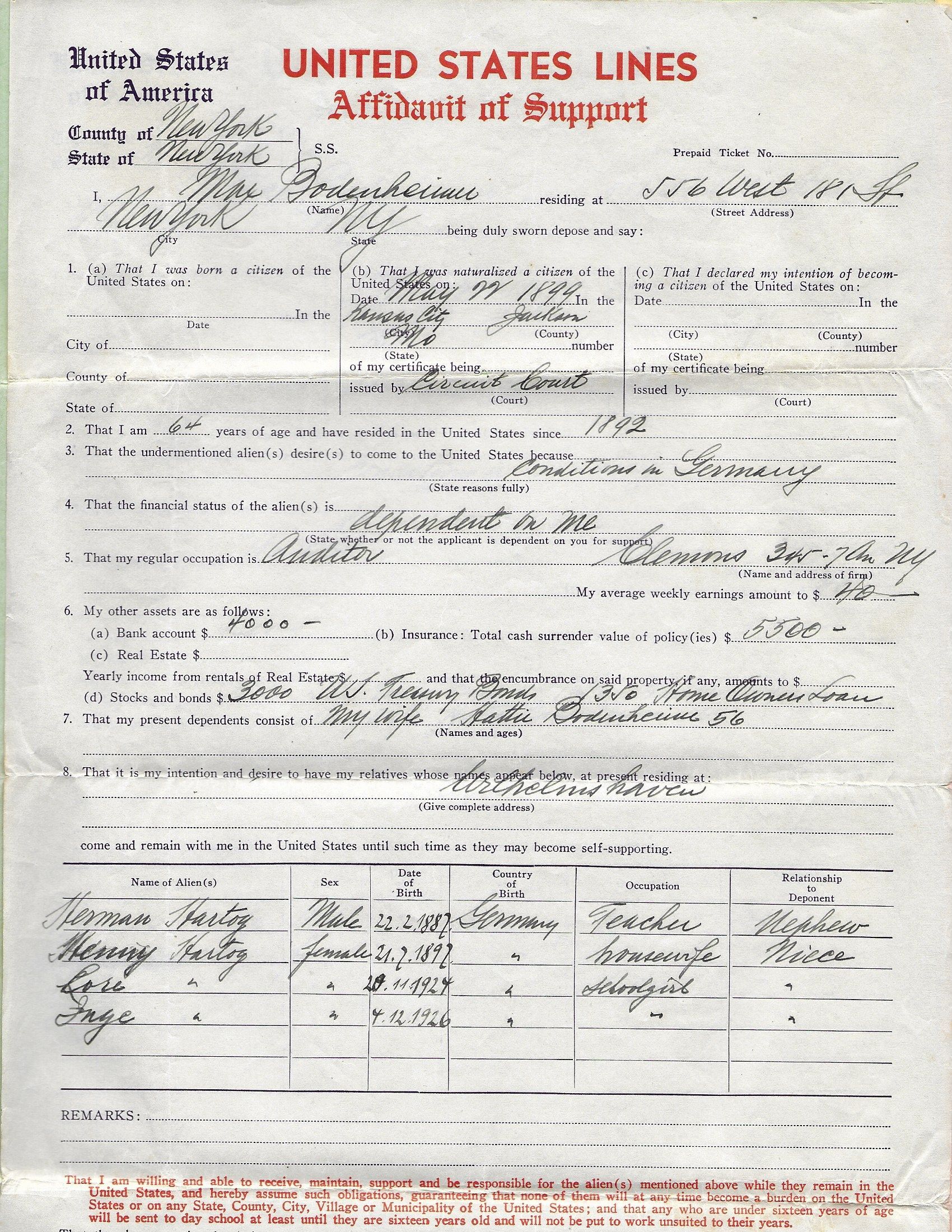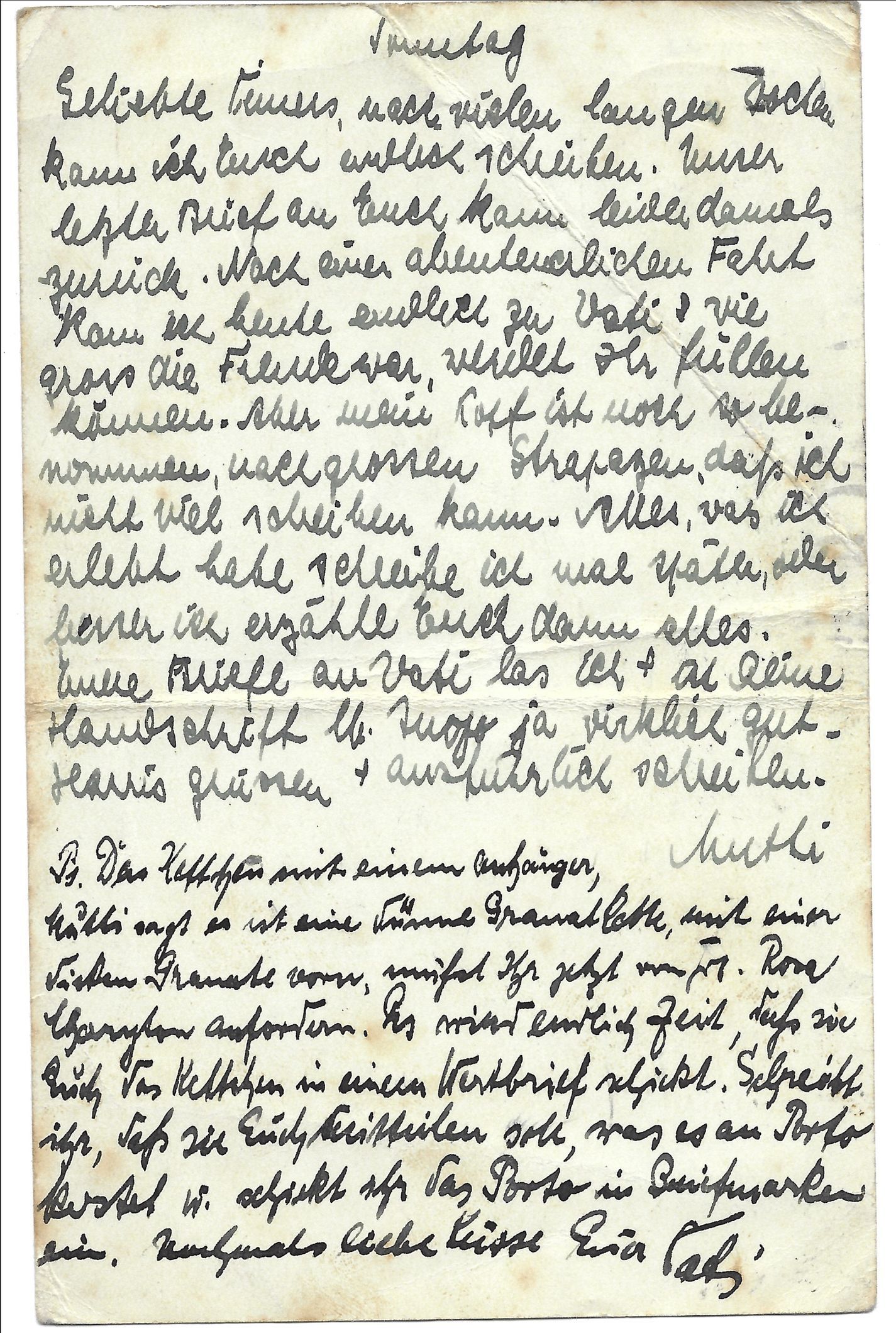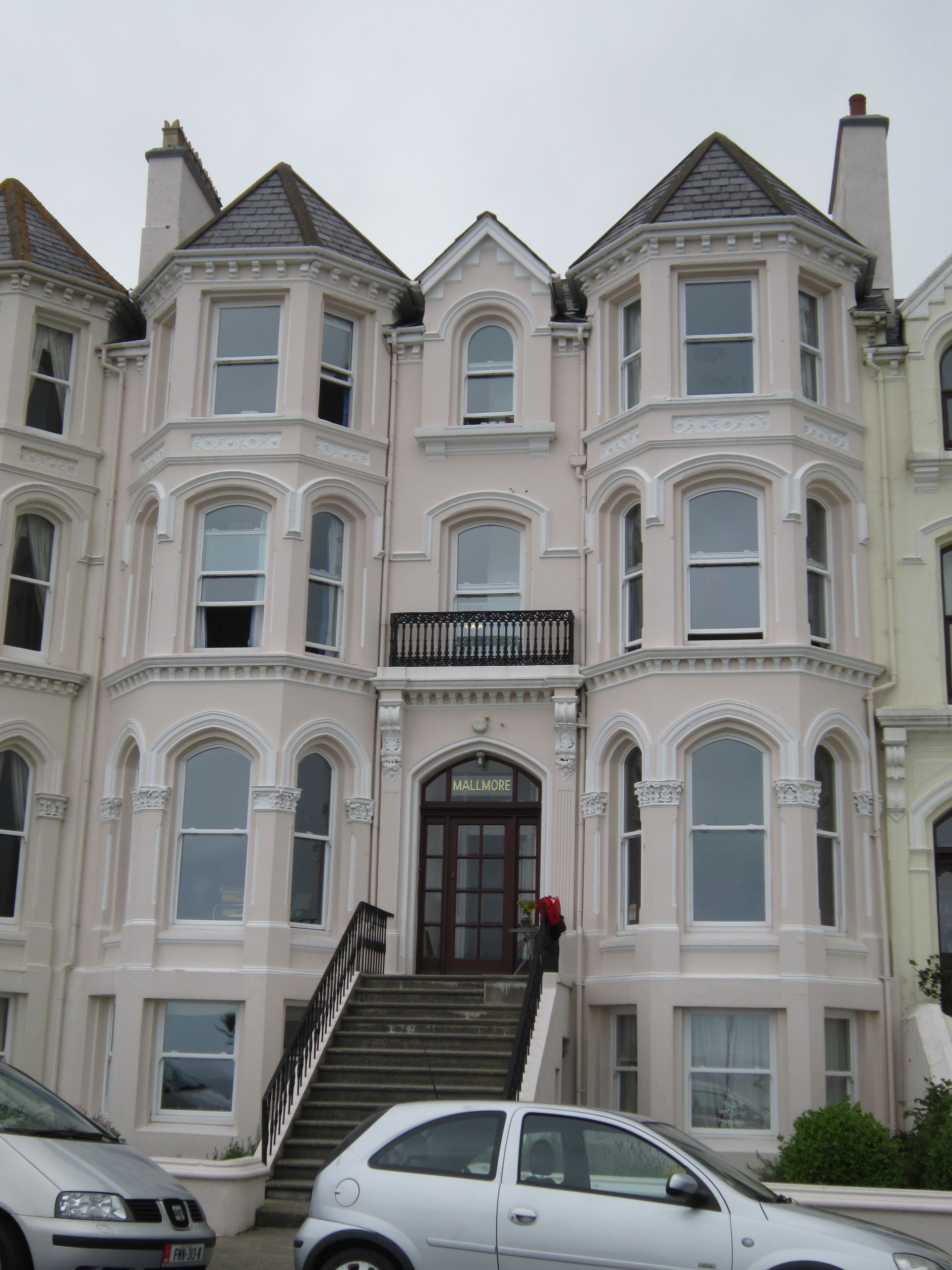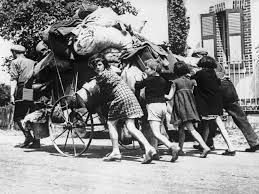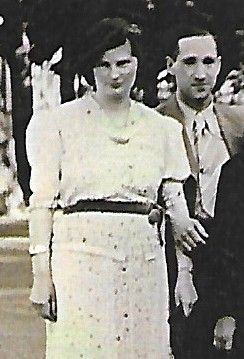Arriving in England on the first Kindertransport
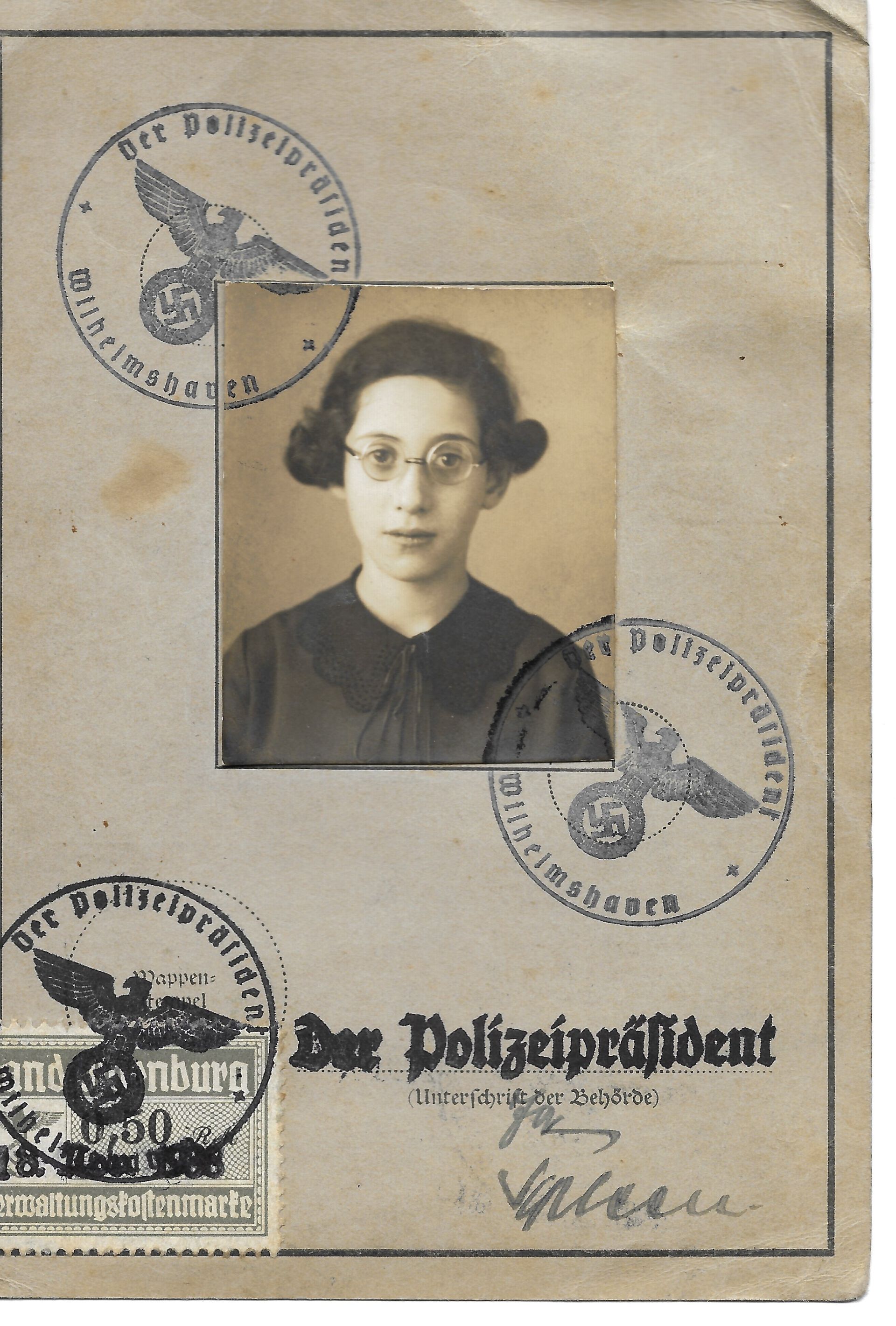
On 2 December 1938, Inge Hartog arrived at Harwich on the first Kindertransport from Germany to England. Two days later, it was her twelfth birthday.
She had travelled by train the previous day with about 200 other mainly Jewish children from Hamburg or Berlin to the border crossing into Holland at Bad Bentheim. There, Nazi officials had boarded the train and searched through the children and those adults accompanying them. They did not harm the children, although they damaged some of their luggage, but it was a very frightening experience. When the train was allowed to proceed, it travelled north through Holland to the coast. In contrast to their treatment by the Nazi guards – and generally their treatment living in Germany as Jewish children – they were greeted all along their route by smiling and waving Dutch people, many of whom offered food and sweets. Inge remembered this welcoming reception with happiness and gratitude for the rest of her life.
None of the children travelled with their parents but there were social workers travelling with the group to guide, help and supervise. As they waited to board their ship, many of the children wrote messages back to their parents in Germany. Inge wrote to her mother and grandfather at home in Wilhelmshaven,
'Dear Mutti and Opa, now it is evening and many children are writing. We were wonderfully received in Holland.
We received quite a lot. First there was meat, then lemonade, chocolate. In an hour we are going by ship to England.
I will write all about it in a letter to you. My writing is very bad. Much love and kisses, your Inge.'
She didn't include her father, Hermann, in the letter. He was no longer at home but in the concentration camp at Sachsenhausen where he had been taken after being arrested the day after the November pogrom three weeks earlier.
The social workers did not travel on the ship with the children but returned back to Berlin. (This was the first Kindertransport to leave Germany and they did not wish to jeopardise future transports by giving any suggestion to Nazi officials that they might be trying to escape themselves.) The children boarded the ship 'Die Prague' and travelled overnight to Harwich, arriving in the early morning of Friday 2 December.
For many of the older children, this was an exciting adventure – although for many of them, and especially for the very young children, it must also have been confusing, frightening and very distressing. The children (and their parents back in Germany) told themselves and each other that their separation was a temporary situation and that they would all be together again very soon.
In fact, Inge never saw her parents again. Ten days after she arrived in England, Hermann was released from Sachsenhausen – on Monday 12 December 1938. We do not know whether he knew before he got back to Wilhelmshaven that his younger daughter had left.
(the picture shows Inge's Kindertransport pass that she needed instead of a full passport)
